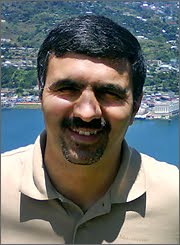Fuel ethanol is currently produced primarily from sugarcane and grains. It is called the first generation ethanol, and with its 70 million tons/year production is globally dominant in the fuel market. A few years back, ethanol cars were dominant in the Swedish green car markets. Today, allmost all the gas stations offer ethanol as E85 to the customers. However, a stron debate on "Food vs. Fuel" in a few years ago, as well as increased price of ethanol reduced the interest to ethanol cars in Sweden.
The 2nd generation ethanol that is produced from lignocellulosic materials has been a very hot topic in the world since 1980's. The research resulted in great development (cf. our
previous review articles 1 and
2) and it is still going on. Many problems of the process have been solved, or are still investigating. However, industrially talking, the "real" price of lignocellulosic ethanol is still high and cannot compete with the 1st generation ethanol. A recent report in Denmark point to a price of about 0.5 Euro per liter higher that the 1st generation ethanol. There are many reasons for this high price, such as enzyme price, difficulties of the pretreatment, transportation costs of raw materials, etc.
As the results of these difficulties, we heard last month turing down the Swedish cellulosic ethanol pilot plant (
SEKAB), and now
backing of Danish Energy minister in supporting of the large scale ethanol plant of
Dong Energy.
We see now the polititions in Denmark talk in favor of methanol and DME. We shouldn't forget our experiences in Sweden for many years in developing both methanol and also DME. These are interesting biofuels, but they also have their own drawbacks. There is simply no black and white, or good and bad. We shouldn't make a high expectation or just disappoint people, as our media or polititions sometimes do!





